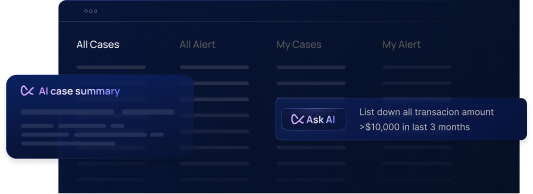The fintech industry continues to grow at breakneck speed, but as innovation accelerates, so does regulatory scrutiny. In April 2025, Lithuania’s central bank fined Revolut Bank a record-breaking €3.5 million for failures in its AML processes. This development is a wake-up call for fintech companies operating across jurisdictions and scaling rapidly.
Here's a breakdown of what went wrong, and more importantly, what fintechs can learn to avoid the same fate.
What Happened: Revolut’s AML Breaches in Focus
According to the Bank of Lithuania, Revolut failed to adequately monitor customer relationships and transactions. This resulted in the company "not always properly identifying suspicious monetary operations or transactions." While no confirmed money laundering was detected, the regulatory body emphasized gaps in Revolut’s monitoring processes and procedural deficiencies.
Despite Revolut’s quick cooperation and remediation steps, the severity of the breach and the fintech’s revenue size led to the highest AML-related fine ever issued in Lithuania.
Key Takeaways for Fintechs in 2025
1. Growth Should Not Outpace Compliance Infrastructure
Fintechs often prioritize product development and user growth, unintentionally sidelining compliance. But regulators are watching closely, and compliance frameworks must evolve with scale. Flagright’s modular compliance infrastructure ensures institutions can scale safely without sacrificing AML integrity.
2. Transaction Monitoring Must Be Real-Time and Adaptive
Revolut’s failure stemmed in part from insufficient monitoring of ongoing business relationships. Static rule-based systems are no longer enough. Flagright’s AI-native transaction monitoring system provides real-time alerts, dynamic risk scoring, and pattern recognition capabilities to help identify anomalies before they escalate.
3. Procedural Gaps Are Just as Critical as Technology Gaps
It wasn’t just about technology; Revolut faced scrutiny over process-level weaknesses. Fintechs must ensure that SOPs, case management, and alert escalation protocols are clear, auditable, and frequently reviewed. This is why Flagright developed an integrated case management and audit trail system that help compliance teams stay ready for regulatory inspection at all times.
4. Regulatory Expectations Are Rising in Europe
With Lithuania setting a precedent, other EU regulators may follow suit. Fintechs operating under EU passports or multiple licenses must maintain harmonized compliance standards across all jurisdictions. Flagright helps institutions align with FATF, EU AMLDs, and local regulatory frameworks through pre-configured compliance logic and localization features.
5. Proactive Compliance is Cheaper Than Fines and Reputational Damage
While Revolut reported no confirmed laundering cases, the reputational impact of the fine is significant. A proactive compliance strategy driven by automation, analytics, and AI not only prevents penalties but also boosts institutional trust.
How Flagright Can Help
Flagright is purpose-built for modern financial institutions, offering:
- Real-time transaction monitoring
- Automated risk detection and alert investigations
- No-code rule customization
- Cross-jurisdictional compliance support
- Centralized case management
By embedding smart, scalable, and AI-native compliance infrastructure, fintechs can detect threats early, reduce false positives, and maintain regulatory confidence as they grow. That’s why it’s no surprise that not a single Flagright customer across six continents has ever received a compliance fine. Schedule a demo today.
Final Thoughts
The Revolut fine is not just about one company; it reflects broader regulatory expectations in an increasingly complex financial ecosystem. For fintechs, the lesson is clear that AML compliance is no longer a back-office function. It's a strategic pillar of sustainable growth.
Want to ensure your fintech never ends up in the regulator's spotlight? Schedule a demo or talk to our team at Flagright today.




.svg)























